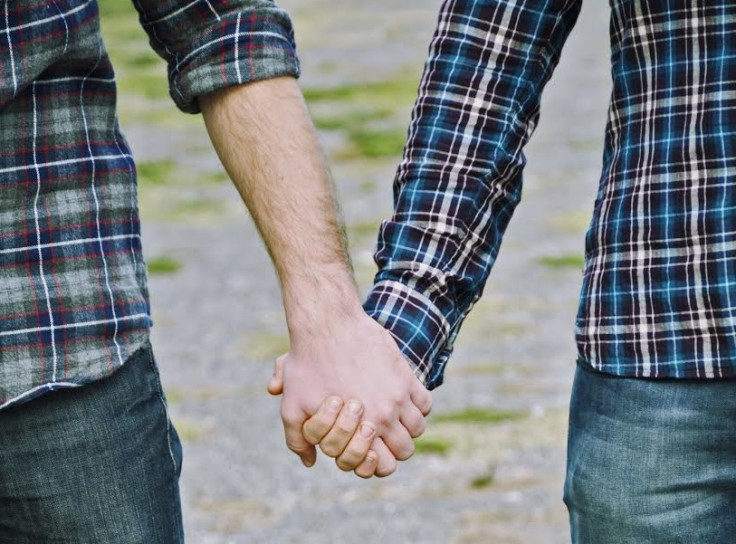LGBT History Month: If you think we are equal now same-sex marriage is legal, you are wrong

You have equal rights now, so what's the point?
Since 1997, progress has been made in the United Kingdom around protective legislation, gender recognition and same-sex marriage has been passed through the Houses of Parliament. But the battle for the liberation of lesbian, gay, bisexual and transgender (LGBT) people doesn't stop at the altar; in fact, it's quite the opposite.
None of this legislation truly goes far enough to protect LGBT people and to ensure that they have equal treatment under the same laws as people who don't define. Take, for example, same sex marriage. This isn't equal: for the trans community, there is still the spousal veto included within same-sex marriage, which can stop a person from getting the gender recognition one deserves and adding another 'gatekeeper' to an individual from being able to transition.
This year in London alone we have seen hate crime rise for the LGBT community. We are still hearing about students' experiences in education, and not just in schools but in colleges, apprenticeships and universities. Our education system still doesn't reflect our identities, our history or even our relationships.
This year the theme of history month is Religion, Belief and Philosophy – taboo subjects within the LGBT community, but ones that we must start creating dialogue around. For too long it has been seen that you can only have one or the other, but we know that's not the case, and this story is not one that is incorrect but one that sets a dangerous narrative for LGBT people of faith. We're often told that in life you don't discuss two things: politics and religion. But for those of us involved in student activism, both subjects are pretty unavoidable. We're often told that politics has no place in religion and religion has no place in politics. Again we only have to look around us to see that again this is both not true.
This history month, we should highlight the brilliant work that is being done within this area of LGBT activism from Keshet, an LGBT Jewish organisation, or Imman, an Islamic LGBT organisation. We must do our best to educate not only the LGBT community, but society as whole.
We have come a long way in the UK, but I know all too well this is not the case for LGBT people all across the world. LGBT rights are considered human rights by Amnesty International, but as of July last year, 72 countries still have laws criminalising homosexuality. Countries in Asia and Africa have some of the worst LGBT-related legislation: in Iran and Saudi Arabia it is punishable by death, but imprisonment, fines and whipping are commonly used alternative punishments. It is worth noting though that Lebanon has an internal effort attempting to legalise same-sex relationships.
LGBT people living in countries where it is legal still face discrimination laws against the 'promotion of homosexuality'. Countries such as Morocco, Romania and Lithuania all have so called Anti-Homosexuality Bills that restrict the distribution of 'propaganda' promoting homosexuality. This is especially enforced when considering children. Attitudes towards LGBT people have begun to change rapidly in the 20th century. While overall the trend is towards acceptance, there are areas of society that are lagging behind. LGBT athletes still face many challenges and international sporting organisations come under much scrutiny for hosting competitions where LGBT equality is not enforced at all.
Although there are plenty of campaigns to help the LGBT community participate in sport, still there are many issues that LGBT people can face: from attitude from fans watching the sports, to gendered sports kits as a barrier for many trans people who wish to participate. There have been a lot of high-profile athletes to come out in sport, from Nicola Adams to Tom Daley, but there are still many athletes who have decided not to come out in fear of public reaction.
This month is particularly important to me, given that I have been campaigning for equality for many years now. It gives hope, education and empowerment to so many people, and also gives us a chance to get out and campaign around issues that are important to us, such as lifting the blood ban for men who sleep with men, fighting stereotypes that are forced upon us, and celebrating the wins that we have made as a community - but also how much further we have to go.
In my opinion, every day should be history day for LGBT people and there is work to be done all year round to ensure that we as a community get equal rights. This history month, if people ask you "Why do you get a month to celebrate an identity?" remind them that in most areas of life, there is no or little celebration of LGBT people. From adverts, to our education system, our national sports teams and even still at most places of worship.
Our liberation won't come from sitting down and waiting for change to happen, it takes campaigns, education and time. So if people ask you why have a history month, I think the best response would be – you should feel privileged that your identity hasn't been oppressed within our society in order to warrant one.
Robbie Young is the National LGBT+ Officer for the National Union of Students.
© Copyright IBTimes 2024. All rights reserved.






